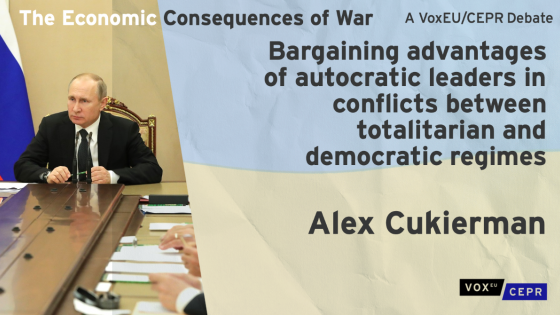
Alex Cukierman is Professor emeritus at Tel Aviv University, Professor of Economics at the Interdisciplinary Center and Research Fellow at CEPR. He got his Phd in Economics from MIT in 1972. Cukierman is author or co-author of four books and over a hundred scientific articles in the areas of macroeconomics, monetary economics, political economy and monetary policy and institutions. His best known book is: Central Bank Strategy, Credibility and Independence – Theory and Evidence, MIT Press, 1992 and 1998. Between October 2011 and October 2015 he served as an outside member of the Bank of Israel’s Monetary Policy Committee.
A former President of the Israeli Economic Association, Cukierman has been a Research Fellow at the Center for Economic Research at Tilburg University and a Visiting Professor or Scholar at Northwestern University, New York University, Carnegie Mellon University, Freie Universitat Berlin, Princeton University, the Federal Reserve Bank of St. Louis, the World Bank, the University of Chicago, Stanford University, the University of Canterbury, the University of California at Santa Cruz and the Universities of Bonn and Munich.
During the early eighties he applied Lucas’ “aggregate-relative” confusion to develop a deeper understanding of relative price variability and of the distributions of inflation and of inflationary expectations. This effort culminated in the book: Inflation, Stagflation, Relative Prices and Imperfect Information, Cambridge University Press, 1984. He also has worked on the interaction between politics and fiscal policy and on the consequences of asymmetric information in political economy as examplified by the (joint with M. Tommasi) 1998 AER paper: When does it take a Nixon to go to China? During the first decade of the twenty first century Cukierman’s work dealt with central bank independence and inflation in transition economies, the tradeoff between credibility and flexibility in the context of exchange rate regimes, non linearity in Taylor rules, consequences of centralisation of wage bargaining within and outside a monetary union, the limits of transparency in monetary policy and the impact of WWII on redistribution in the US.
Recent work deals with the implications of bailout uncertainty for the financial system and other questions motivated by the global financial crisis. Among those are expansion of central bank tasks in the aftermath of the crisis, regulatory reform, comparison of monetary policy responses to the crisis in Europe and the US, comparison of the performance of the quantity theory of money in the US today with Germany during the hyperinflation and the choice of exit strategies. Since 2020 work on economic, political and sanitary aspects of the Covid -19 crisis and the return of inflation.

VoxEU Column
Bargaining advantages of autocratic leaders in conflicts between totalitarian and democratic regimes: Reflections on the Russian invasion of Ukraine
-

- Politics and economics

VoxEU Column
A Covid-19 quartile comparison of official with excess mortality: Voice and accountability and the impact of vaccines
-

- COVID-19

VoxEU Blog/Review
Why is COVID-19 incidence in authoritarian China so much lower than in the democratic US: Effectiveness of collective action or Chinese cover-up?
-

- COVID-19

VoxEU Column
Quantitative easing and helicopter money: Not so distant cousins
-

- COVID-19 
- Monetary Policy

VoxEU Column
Implications of the permanent-transitory confusion for New-Keynesian modelling, inflation forecasts, and the post-Global Crisis era
-

- Frontiers of economic research 
- Macroeconomic policy 
- Monetary Policy